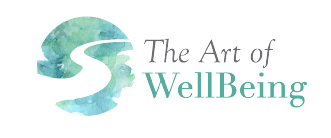The Strange Gift of Summer
Summer stretches out before us—bright, chaotic, and unpredictable. For many, it feels like a break from the norm: school is out, routines are disrupted, and the heat slows our pace. Yet what seems like welcome relief can also feel helter-skelter and disorganized. In many ways, summer is a liminal season—a threshold where the old has ended and the new has not yet begun.
I often return to the work of William Bridges, who defines transition not just as change, but as the internal process we undergo when external change happens. Every transition includes three movements: an ending, a neutral zone, and a new beginning.
The neutral zone—what summer so often resembles—is the messy middle. It’s marked by disorientation, vulnerability, and the possibility of deep transformation. It can feel chaotic, unproductive, or aimless. But Bridges insists this liminal space is fertile ground for creativity and growth—if we let it be.
To help us navigate these in-between times, he names two essential practices: ritualized routine and attentive inactivity.
I’ve cultivated ritualized routine over the past decade, especially following my transition out of 30 years in church leadership into coaching and coach training. If you’ve participated in an Art of WellBeing coaching cohort, you might understand this as a rule or rhythm of life—small, grounding practices that shape formless time: making coffee the same way each morning, walking at dusk, lighting a candle before prayer. They don’t rush transformation but offer rhythm and safety while we wait.
My own daily rituals, especially in the chaos of summer, include morning pages, meditation or listening prayer, and walking in nature. On fuller days, I shorten these to just five or ten minutes. Even in brief form, they hold me steady.
The second practice, attentive inactivity, is the brave act of doing less on purpose. It invites listening, noticing, and presence. It resists our impulse to fill time, fix problems, or rush toward clarity. Think of a summer afternoon spent staring at the ceiling fan, watching birds, or journaling with no goal in mind. These aren’t wasted moments; they’re sacred pauses where the soul can breathe and imagination stirs.
Attentive inactivity is harder for me than ritualized routine. It reminds me of Susan Beaumont’s spiritual shift for leaders: from advocating to attending. It echoes the healing that comes from piddling, dabbling, or tinkering. Recently, while reading about the Texas floods and grieving families, I found myself weeping. Though I felt helpless, I simply sat with my tears and noticed.
There is deep wisdom in doing less while paying close attention. In a world that idolizes productivity, summer reminds us we are cyclical creatures. We need seasons of incubation and wandering to access our most authentic creativity. Without the neutral zone, we leap from ending to beginning without the inner work of becoming.
The gifts of summer emerge precisely because of its unpredictability. Its liminality holds paradox: joy and fatigue, freedom and loss, excitement and longing. Here lies permission—to rest, to grieve, to play, to imagine.
So what if you received remaining days of summer as an invitation—not to hustle, but to tend your inner life with both freedom and form? What if the strange emotions you’re carrying aren’t signs of failure but evidence that you are, in fact, in the fertile middle?
Rest. Ritual. Reflection. These are not luxuries. They are how we live through the seasons—and how, by grace, we are made new.
Walking with you,
Vicki
